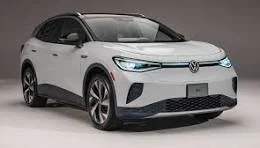Volkswagen's electric car sales have decreased by over 24% in the first three months of the year in Europe. This decline is because of the high inflation rates, increased energy prices, and increased demand for gasoline consumer cars. Petrol car sales witnessed a striking shift in the preferences of UK customers, as petrol engine sales rose by 9.2%, whilst electric vehicle registrations increased by only 3.8% compared to the preceding year.
The European market experienced a significant increase in the request for petrol cars which were higher than the registration of electric vehicles. For the first three months of 2022, BEVs (battery electric vehicles) were 10% of the total EU sales of passenger cars, and plug-in hybrid EVs were 8.9%. Nevertheless, the dominance of petrol and diesel cars remained at 52.8% during this period.
The troubles of Volkswagen in the electric vehicle market brought cuts in production in Germany because of the decrease in demand. Another difficulty the company has encountered in servicing demand can be seen from the disclosure that the largest maker of electric vehicles in the world has been hit by setbacks in the supply chain.
It is obvious from the company's strategy to EV production that the company won't renew the contracts of the temporary workers who are working on EVs at Emden plant. Besides this, Volkswagen has already given a hint that the current Golf Mk8 hatchback would be its last with just a petrol engine, thus indicating a move towards EV production.
Nevertheless, the company stands firmly on its electric car strategy with the goal of 8-10% EV sales share in Europe. The company bank on the renewed ID.4 and ID.5 models to bolster its EV sales in the region.
Volkswagen electric cars sales had a clear negative deviation in Europe attributable to increased demand for petrol cars and therefore a fall in demand for battery cars. When it comes to challenges the company encounters, there are input shortages and production drops attempting to keep the place in the electric vehicle sector.
Volkswagen's Measures to Improve
The Volkswagen company has invested a lot in implementing different measures that aim to influence various operations aspects with a purpose of finding solutions to existing challenges. undefined
Environmental Commitment
The vehicle manufacturer Volkswagen has embraced the Paris climate objectives and has set a goal to be CO-neutral by the year 2050. The company has introduced 29 measures ensuring that in respectively, vehicle production, plant operations, and processes. This pledge is evidence of Volkswagen’s willingness to do its part in mitigating the impact of the crisis of climate and preventing temperature rise.
Sovereign Culture and Whistleblower Program
In the wake of the Dieselgate corruption scandal, Volkswagen added compliance culture and launched a whistleblower system. These efforts are targeted at avoiding further scandals and reviving the company's name. With the help of a recreated compliance culture as well as an enlarged whistleblower program, Volkswagen aims at stopping the ethical wrongdoings and adopting a responsible decision-making process.
Cost-Cutting and Efficiency Improvements
Volkswagen undertakes a redesign of its project expenses aimed at increasing the profit by almost 11 billion bucks by 2026. The brand manager of the company has worked out how productivity and efficiency can be elevated to increase the competitiveness of the organization. On top of that, financial savings Volkswagen plans to achieve by way of supplier squeezing, production time-improvement, and after-sales business reorganization.
Environmental Mission Statement
Permitted by its new goTOzero environmental mission statement, Volkswagen is heading to unite all its strategies in environment protection. The company's endeavors cover the whole production cycle starting from and up to the systematic restoration at the end of the vehicle life cycle and company management. It implies to VW and its shareholders where these environmental protection efforts are headed.
Volkwagen adopted measures to eliminate stereotypes and presented diversity as the mainstream in the very VW culture. The Group and the brand stand against discrimination and exclusive attitudes, giving an idea of superiority depending on the 'outside', which underline the Volkswagen's desire to grant a real workplace diversity and inclusion.
At the same time, these steps showcase the multifaceted approach of Volkswagen to resolution of challenges and improvement of some other aspects of its activities such as environmental sustainability, compliance culture, efficiency, and diversity and inclusion.



0 Comments